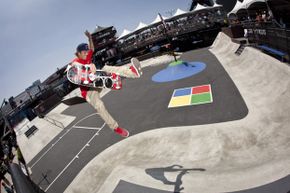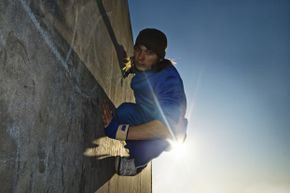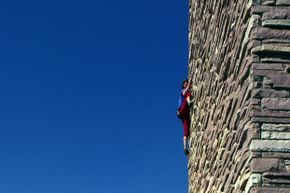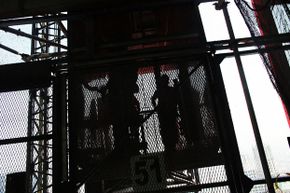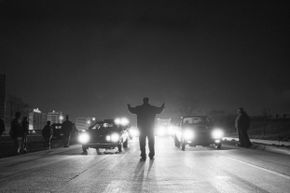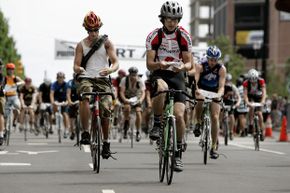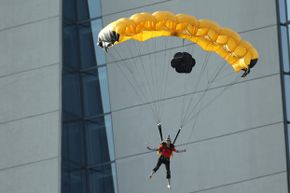When you think of train surfing, you might picture old timey hobos riding the rails during the American Great Depression, but modern train surfing is even more dangerous.
Train surfing first caught on in Germany in the 1990s, but after a slew of train surfing-related injuries and deaths, it fizzled in popularity. It started resurging in 2005 as kids shared videos of themselves train surfing on video sites like YouTube [source: Joel]. Because of the risk involved for surfers and passengers and the potential damage to property, train surfing is illegal in most countries.
Train surfers climb up the side of moving trains to "surf" the top of the train car, like Michael J. Fox did on the top of a van in "Teen Wolf." They sometimes also leap from car-to-car or hang on to the side of the train. This urban sport is popular all over the world, and participants risk injury or death from electrocution, falls, or getting crushed [source: RT]. There were 40 train surfing-related deaths in 2008 in Germany alone [source: Joel].
A U.K. teenager was hospitalized after riding on the outside of a train for 3 miles (4.8 kilpometers). He fell off when the train pulled into the station, suffering injuries to his head and back, as well as substantial blood loss. Earlier that same year, another U.K. teen got a four month referral order -- sort of like community service -- and had to pay £20 (U.S.$32) in damages for train surfing; officials in the U.K. have said that train surfing is dangerous and illegal [source: The Sun].
In some places, train surfing goes beyond sport to necessity. In Jakarta, where the poor can't always afford to buy tickets, and the trains are extremely crowded, riders will "surf" the top of a train just to get to and from work each day. Indonesian authorities have begun hanging concrete balls above train tracks to stop train surfers there [source: BBC].
